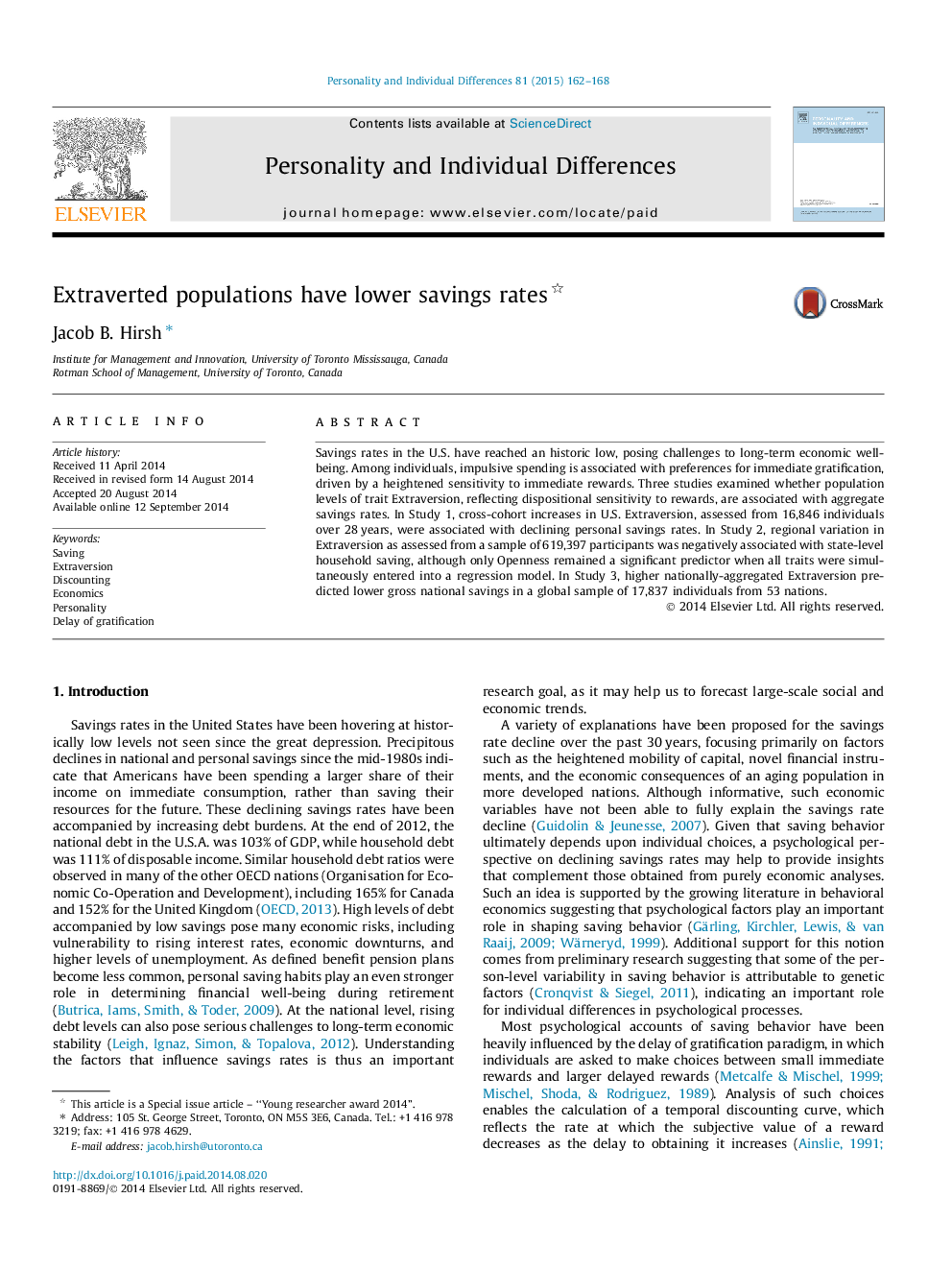| Article ID | Journal | Published Year | Pages | File Type |
|---|---|---|---|---|
| 890062 | Personality and Individual Differences | 2015 | 7 Pages |
•Savings rates have reached an historic low in the United States.•Among individuals, saving behavior is related to trait Extraversion.•Cross-temporal savings rate declines were correlated with increases in U.S. Extraversion.•More extraverted states in the U.S. were characterized by less household saving behavior.•More extraverted countries displayed lower national savings.
Savings rates in the U.S. have reached an historic low, posing challenges to long-term economic well-being. Among individuals, impulsive spending is associated with preferences for immediate gratification, driven by a heightened sensitivity to immediate rewards. Three studies examined whether population levels of trait Extraversion, reflecting dispositional sensitivity to rewards, are associated with aggregate savings rates. In Study 1, cross-cohort increases in U.S. Extraversion, assessed from 16,846 individuals over 28 years, were associated with declining personal savings rates. In Study 2, regional variation in Extraversion as assessed from a sample of 619,397 participants was negatively associated with state-level household saving, although only Openness remained a significant predictor when all traits were simultaneously entered into a regression model. In Study 3, higher nationally-aggregated Extraversion predicted lower gross national savings in a global sample of 17,837 individuals from 53 nations.
